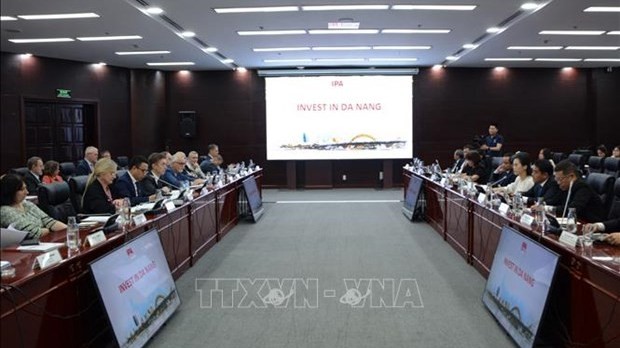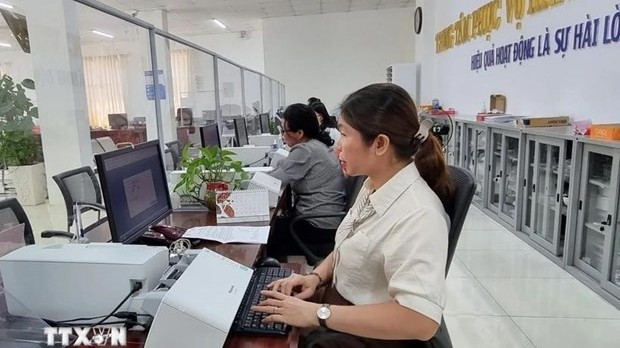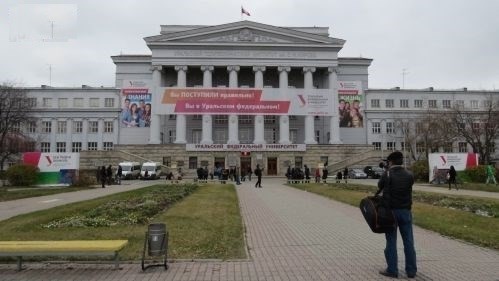
Viet Nam gains significant outcomes in developing market economy: Study
Latest
 |
| A garment factory in Thoi Lai township of Can Tho city. (Photo: VNA) |
Findings of the study, conducted by the Central Institute for Economic Management (CIEM), were released at a workshop held on March 28 as part of the Macro-economic Reforms/Green Growth Programme in Viet Nam implemented by the German Agency for International Cooperation (GIZ).
In her opening remarks, CIEM Director Tran Thi Hong Minh said from a centralised, bureaucratic, and subsidised economy, a market economy has gradually come into being and been developing in Viet Nam. Reforming the mindset and awareness of the market economy is an important milestone creating the foundation for building and completing the market economy in the country.
The role, functions, and tasks of the State, along with relations among the State, the market, and society, have been better aligned with the market mechanism. Besides, fundamental factors for the market mechanism’s operations have taken shape and become clearer, she said, noting that market opening and international integration are critical catalysts for the country to press on with developing and perfecting its market economy in the recent past.
The 13th National Party Congress set a target that Viet Nam will establish itself as a developing country with modern industry and upper-middle income by 2030, and a developed and high-income country by 2045. To that end, it needs to make strong, intensive, and extensive reforms to substantively transform into a fuller market economy with social and environmental responsibility, according to Minh.
The study found that working towards a market-oriented economy for over the past 35 years, Viet Nam has seen a leaner, and more efficient and effective State apparatus, an improved business climate, and an economy with increased size and quality. From a poor and underdeveloped country, it has become a developing country with lower-middle income since 2008.
However, the study also pointed out many shortcomings and challenges during that process.
Nguyen Thi Luyen, deputy head of the board for enterprise reform and development studies at CIEM, cited the study as saying that it is necessary to continue reforming the mindset, define the country’s market economy model more clearly, clarify the relationship between the market economy development and the socialist orientation, ensure equal and orderly competition, and guarantee social, environmental, and ecological issues.
At the workshop, participants discussed the basic reforms during the transition to a market economy, shortcomings and lessons, the main challenges to the market economy completion, and orientations for continued reforms.

























